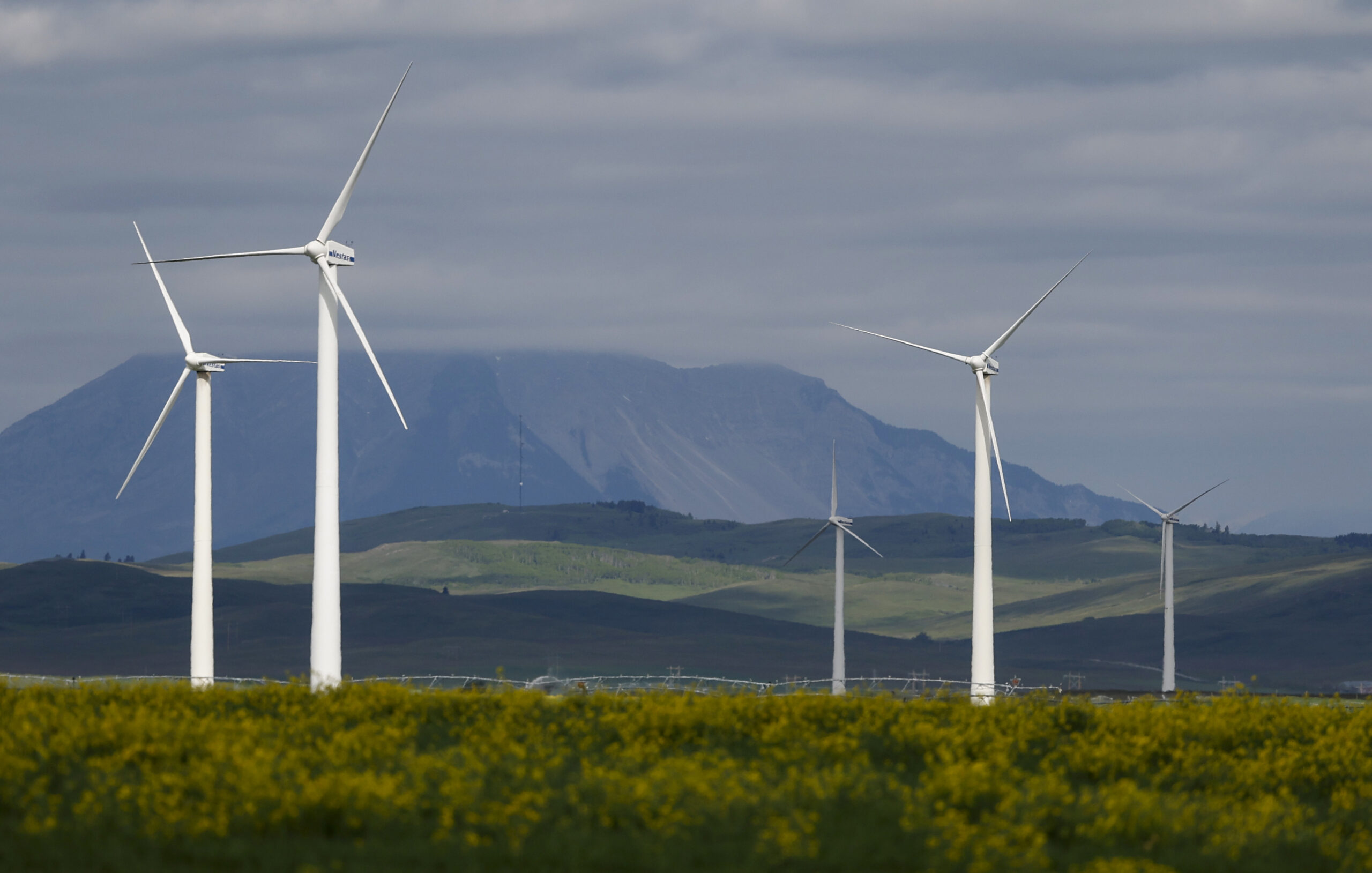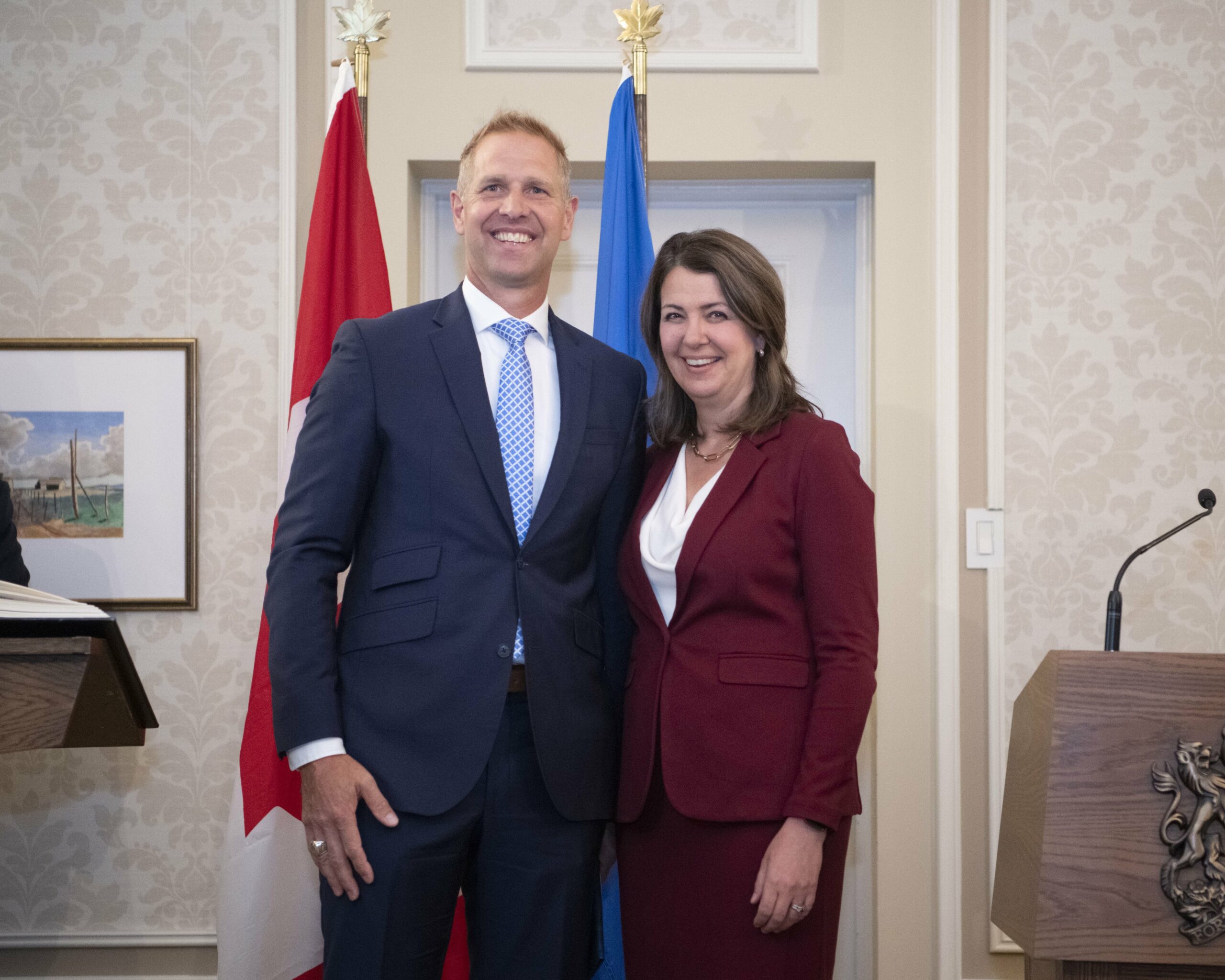
A dam destroyed their river. 61 years later, two First Nations fought for justice
A new documentary, Nechako: It Will Be a Big River Again, dives into how two...
Get the inside scoop on The Narwhal’s environment and climate reporting by signing up for our free newsletter.
Staff at Alberta’s independent grid operator were concerned the provincial government wanted them to “lie” about the organization’s role in the decision to pause all new renewable energy projects last summer, according to internal correspondence obtained by The Narwhal. They refused.
The internal messages, obtained through a freedom of information request, were sent nearly two weeks after the government announced its seven-month moratorium last August and was facing intense media scrutiny, as well as backlash from industry, the investment community and environmental groups over the decision.
As the controversy built, a senior staffer with the Alberta Electric System Operator (AESO) noted the minister of affordability and utilities’ office had requested the organization help “beef up” the province’s communications strategy to say the decision to impose a moratorium was made after multiple meetings — a request that would bring them in line with government talking points. The same staffer said the request had also been made to the Alberta Utilities Commission, which regulates the electricity system.
“Their position, as is ours, is we will not lie,” they wrote.
Those chats, sent via Microsoft Teams, followed weeks of pressure leading up to the announcement for the grid operator to support the government’s decision, including a request to sign a letter supporting the move, as was revealed in previous reporting from The Narwhal.

When the government announced the moratorium on new renewable energy projects, it released two letters to justify the decision: one letter from the Alberta Electric System Operator and one from the Alberta Utilities Commission. The government claimed the letters asked for a pause, but they did not.
Lisa Young, a political scientist at the University of Calgary who reviewed the documents obtained by The Narwhal, says the staff statement about refusing to “lie” is significant.
“It jumped off the page at me, that there was the need to draw that line explicitly that the [Alberta Electric System Operator] would basically do as the government had asked in terms of the letter, but that it would not lie about what had happened,” she says.
“People in positions like that wouldn’t feel the need to say we are not going to lie, unless they perceived pressure in that direction.”
The provincial government has repeatedly asserted its decision to stop all new renewable energy projects for seven months was done following “multiple briefings and conversations” with both the regulator and grid operator, despite not being able to provide evidence of those multiple meetings.
When Nathan Neudorf, the minister of affordability and utilities, first met with the board chairs of the grid operator and the regulator weeks after being sworn in, he informed them of his intention to pursue a moratorium on new renewable projects, as previously reported by The Narwhal.
That reporting also showed the grid operator was opposed to the Alberta renewables moratorium and warned of consequences to the market and the grid if it was introduced. The CEO of the operator, who has since left the organization, was told by the government-appointed board chair to “support the minister without reservation.”
Neudorf’s office did not respond to requests for comment from The Narwhal. The Alberta Electric System Operator and the Alberta Utilities Commission both declined to comment.
In June, Neudorf attended the Canadian Renewable Energy Association’s electricity storage conference in Calgary and was asked by The Narwhal whether he stood by previous assertions the moratorium was the result of multiple meetings with the grid operator and the regulator. He did not answer the question directly.
“Right from day one, I’ve had multiple meetings with the [Alberta Utilities Commission, the [Alberta Electric System Operator] and their board and the [Market Surveillance Administrator],” he said.
The Market Surveillance Administrator polices Alberta’s free market to ensure generators are following the rules.

When asked by reporters to clarify, Neudorf said meetings with those bodies started immediately after he was sworn in, but would only say he talked to those agencies before the pause was implemented and did not specify what they were talking about or how often they met.
Young says these sorts of lingering questions can have an impact.
“They set up arms-length agencies in order to give those agencies the credibility that comes with expertise and independence,” Young says.
“And so if it becomes a regular thing to demand that those agencies comply with government comms requirements, then it defeats the purpose of having them, and erodes their credibility.”
The internal discussions obtained by The Narwhal show it wasn’t just messaging around how the decision was made that staff had to push back on.
On July 17, 2023, shortly after the government informed the grid operator that it intended to implement the moratorium, Mike Law, the former CEO, wrote in an internal chat to his colleagues that he told Tim Grant, the deputy minister of affordability and utilities, his organization could “support a pause to ensure industry has clarity before advancing projects and expending capital.” But Law also said the grid operator could not say “it was due to reliability or integration issues as that is not correct and likely to bite us later on.”
Staff at the grid operator also said the government seemed concerned there could be legal ramifications for the moratorium.
“The key message is that the pause was implemented to draw a line in the sand and signal that there will be some changes going forward after March 1; the intent is NOT to cause economic harm, this was repeated several times by the minister,” wrote one staffer following a meeting with the government, days after the moratorium was announced.
“It appears they are trying to mitigate potential litigation risk,” they said later in the same message to senior staff.
Law, in previous documents obtained by The Narwhal, worried the moratorium could put industry “into a tailspin” and dry up much-needed investment in the grid.
Since the moratorium was put in place, new renewable energy project applications have hit “a standstill” and 53 projects have been cancelled, according to the Pembina Institute.
The impact, however, won’t be felt immediately.
“Taking into account project development and construction timelines, most of the moratorium’s impacts on the sector’s growth will be seen in 2025, when fewer renewable energy projects are built,” the report reads.
Get the inside scoop on The Narwhal’s environment and climate reporting by signing up for our free newsletter. Angello Johnson’s shoulders burn, and his arms...
Continue reading
A new documentary, Nechako: It Will Be a Big River Again, dives into how two...

Bracken was recognized for intimate portraits of residents of Fort Chipewyan, Alta., who told her...

A guide to the BC Energy Regulator: what it is, what it does and why...
